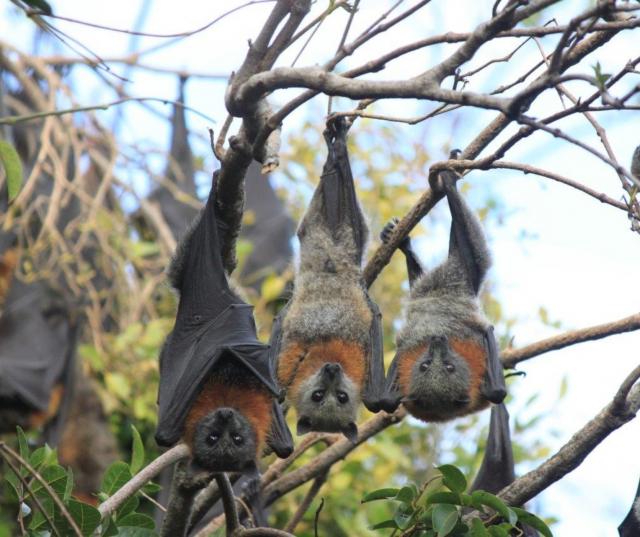Geelong’s bats will soon be able to better cool down during hot temperatures thanks to the City of Greater Geelong.
The City will install an irrigation system to help grey-headed flying foxes (also known as fruit bats) during extreme heat days, with work expected to be completed this year.
Flying foxes are a threatened species and face several threats, including habitat destruction, failing food sources, disturbance, illegal fruit netting and extreme heat events.
Executive Director of City Infrastructure James Stirton said Geelong was “not just a home for us, but for our cherished wildlife”, with a camp of grey-headed flying foxes in Eastern Park.
“Wildlife need our help to ensure they have places where they can live, feed and grow with minimal interference,” he said.
“It’s astonishing to think such an exceptional species like the grey-headed flying fox has set up a camp within walking distance of central Geelong.
“Grey-headed flying foxes are among our most vulnerable species and current rates of habitat loss and warming temperatures are testing their ability to adapt in such a rapidly changing environment.”
Flying foxes breed from September to March, with female bats carrying and feeding their young, called pups, for several months. Both mothers and pups are particularly vulnerable during this period.
Eastern Park currently has many mothers and pups, and when adult flying foxes are disturbed, they may fly away and lose their pups.
Abandoned pups often don’t survive when separated from their mothers, and community members can help by educating others about the danger of making loud noises, like cars backfiring, in Eastern Park.
Sick and injured flying foxes should be reported to Wildlife Victoria by calling 03 8400 7300, who will send a vaccinated and trained wildlife rescuer to assist.
Community members should not touch or handle bats but can help look after flying foxes in the backyard using wildlife-friendly mesh netting smaller than 5mm x 5mm when covering fruit trees.









